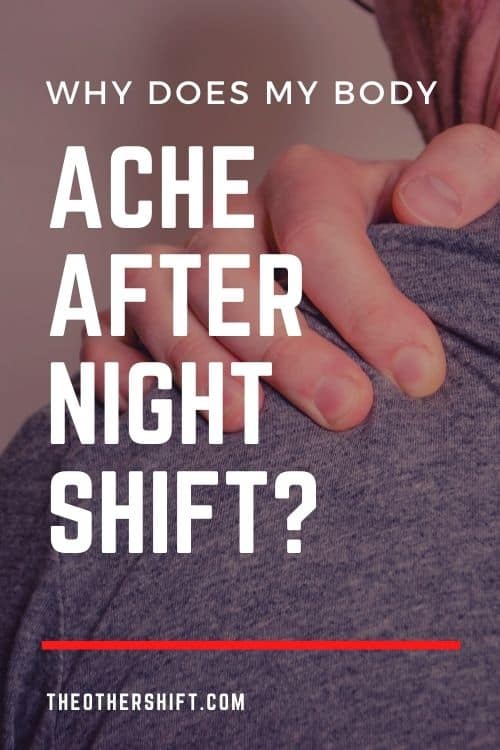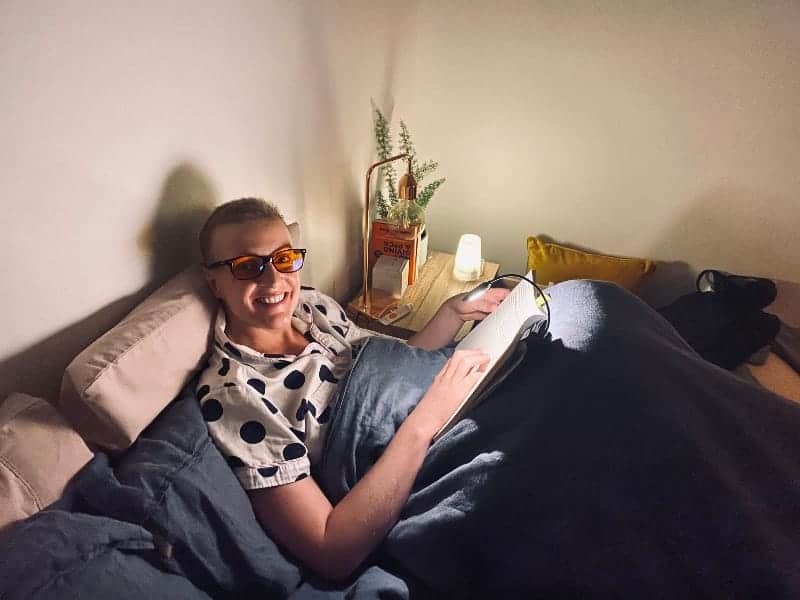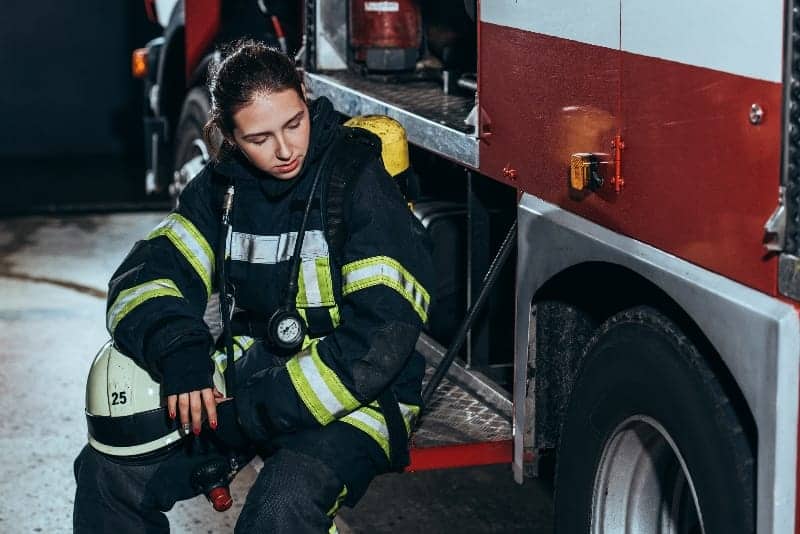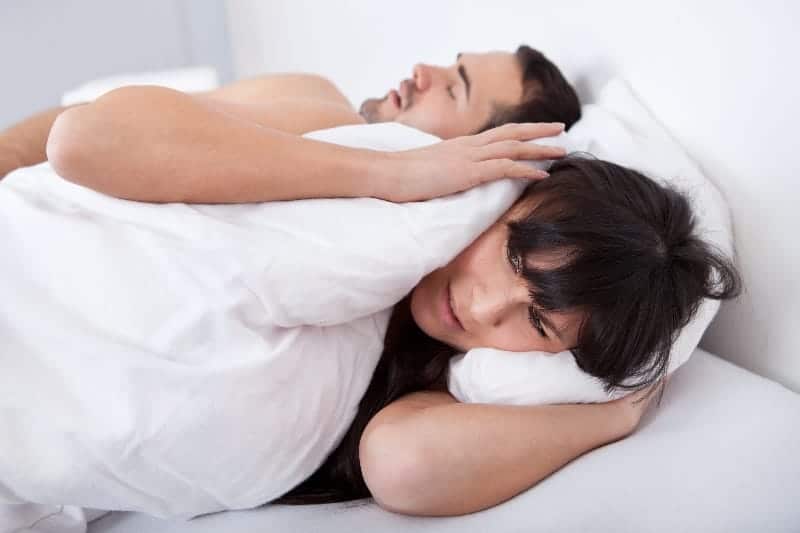Disclosure: This page may contain affiliate links, meaning we receive a commission if you decide to make a purchase through our links, but this is at no additional cost to you. Please read our disclosure and privacy statement for more info.
Now which part of your weary night shift body is hurting? Your head? Legs? Or just the whole darn thing!? As a night shift worker, bizarre aches and pains can be overwhelming at times, distracting you from participating in any form of exercise, sleeping soundly and interacting with those you love without complaining. But why is this happening? Is it a lack of sleep, limited sunshine exposure, or some odd link between poor food choice and pain?
Pain after night shift is likely due to a lack of sleep and disruption to your body’s circadian rhythm. Sleep loss magnifies the pain-sensing areas of the brain but also blocks the areas that analyze and co-ordinate the brain’s response to alleviate pain and discomfort.
It’s not only the random aches and pains felt after night shift that are an issue. Many of us also suffer from chronic health conditions which can feel significantly worse when working the 3rd shift. This post will explain why pain is felt after the graveyard shift (yes, it’s a little medical but I’ve made it easy to grasp) and what we can do to find relief from the symptoms. Take a sip of that chamomile tea, pop your sore feet up and let’s go.
Pain After Night Shift? Lack of Sleep Is Probably To Blame
I know I sound like a broken record, but sleep is most likely to blame for why we feel so achy after a night shift.
Just the other morning I walked into the trailer hitch on my neighbor’s car after a long and hectic night shift in the ER and thought I was going to self-combust with agony. Would the shooting pain rattling through my body be comparable to that of a day shift worker? Probably. But for some reason, it just felt so much worse.
But why is sleep to blame? There are two main reasons.
- Lack of sleep increases our body’s response to pain in what the researchers call primary sensing regions of the brain. (source)
- Poor sleep also blunts the areas of the brain which help in processing and analyzing pain. When working properly, after 7-9 hours of restful sleep, the body can naturally find pain relief to lessen the pain.

So it appears a lack of sleep can not only make pain feel worse but it also blocks the brain’s special areas that help find a natural pain killer.
We recently did a survey among our community regarding how much sleep they are getting after a night shift. Here is a screen shot of the results.

It’s no wonder we are sore!!
According to the National Sleep Foundation , they advise that healthy adults need between 7 and 9 hours of sleep per night. These numbers do vary over our life span, such as kids requiring more sleep while older adults need slightly less.
, they advise that healthy adults need between 7 and 9 hours of sleep per night. These numbers do vary over our life span, such as kids requiring more sleep while older adults need slightly less.
Most adults need 7-9 hours sleep because;
- Your body repairs tissues
- It boosts your immune system
- Builds energy for the next day
- Clears the brain “waste” which develops over the course of a day
- Continuously works on growth and development
As a night shift worker yourself, can you honestly say you’re getting this much sleep consistently? I hope the answer is yes but I am unfortunately a little doubtful.

Booklight – Tick
Phone charging outside of arm’s reach – Tick
What Does A Good Night (Day) Sleep Look Like?
A good sleep is made up of different parts, irrespective of working overnight or not.
According to the Sleep Foundation, “as we sleep, we cycle through light sleep, slow-wave sleep, and rapid eye movement (REM) sleep”. And in order to feel refreshed, alive, and not like a zombie as is often reported by night shift workers, we need a nice balance of these sleep stages.
In particular slow-wave sleep and REM sleep which we chat about in this article, discussing lavender and its role in helping us sleep.
If your sleep cycle is disrupted by the neighbour’s dog or your housemate’s lawn mowing diligence, your body will have a tough time progressing through the sleep cycles and this doesn’t exactly lead to a restful sleep.
Night Shift and Sleep Research
Harvard Medical explains that though the National Sleep Foundation recommends seven to eight hours of sleep for people over the age of 64 and seven to nine hours for ages 18 to 64, you have to explore that research a little.
They suggest that sleep studies, particularly on night shift workers, are incredibly challenging to undertake and therefore hard to develop generalized conclusions.
Most of the studies use healthy, young participants who normally work 9-5 jobs or those who might be studying and have free time to participate.
The problem here is night shift workers don’t always fit this mold. Our ages can be vastly different, or pre-exisitng health conditions are varied and our personal opinions and beliefs about sleep and health are different too, each impacting on the research.
What this means for us working overnight is this:
- Listen to the health advice from The National Sleep Foundation based on averages. While these numbers may not be perfect, aiming to sleep for the recommended durations can only mean better news for our health and importantly less aches and pains.
- Don’t get too sucked in on smaller studies done regarding night shift workers without looking into all the facts. How many people participated in the study? Was it random? How long did the study go for?
“Experimental studies are typically performed on healthy volunteers, presumably not used to being awake at night”
(source)

Night Shift Workers and Chronic Pain
It’s also worth mentioning that night shift workers with chronic pain issues may feel their symptoms a little worse too.
Painscience.com explains that “sleep deprivation can counteract analgesic effects of pharmacological treatments involving opioidergic and serotoninergic mechanisms of action”.
This means that some of the pills that you may be taking for your pain don’t really work as well if you’ve had poor sleep. (source) The research is limited here but an important take away is that if you are taking strong medications for pain and you’re working nights, it might be worth chatting to your doctor about what happens if you don’t get enough sleep.
Do they still work? What can you do specifically (based on your personal situation) to better your experience with these drugs.
Migraines, Obstructive Sleep Apnea and Lack of Sleep
I stumbled across this YouTube video which discussed Obstructive Sleep Apnea and it’s link with sleep deprivation and migraines. This is of personal interest to me as it affects a close family member but I also recall a certain nurse at work talking about a similar problem.
I wanted to mention this because if you are suffering from headaches and migraines after a night shift, is it caused due to sleep apnea?
In basic terms, obstructive sleep apnea is where the tissues around the neck construct your airways when you sleep. This can lead to a lack of oxygen to the brain and body causing headaches and generalised discomfort. A friend once described it as a “jittery” feeling.
If you think you might be falling into this group as your sleeping partner says you snore or stop breathing when you sleep, please don’t panic. Sleep apnea is treatable with a mask you wear to bed of a night / day. Make an appointment to see a sleep specialist and get some help. There is no shame here.
If you suffer from sleep apnea or think you or your partner might be, check out this post – Can Working Night Shift Cause Sleep Apnea?

How To Relieve Pain On Night Shift With Better Sleep
| Sleep Issue | Tools To Help / Where to Buy |
|---|---|
| It’s too bright | – Wear blue light blocking glasses – Buy our top glasses recommendation here – Put up blackout blinds – These are reasonably priced and are very effective – Wear an eye mask – I wear this silk, oversized one daily. |
| You’re getting too hot | – Use an air conditioner or portable fan – We love this hand handheld fan – Place a cooling pad on your mattress – These are cool (literally!) Check it out here – Try some breathable bamboo sheets – We like these ones |
| You’re getting to cold | – Try a weighted blanket – Layla Weighted Blankets are impressive and worth a look |
| “I’m wired” | Are stimulates the problem? Alcohol, cigarettes and coffee? This is my favorite sleep tea as a nice relaxing alternative |
| You’re feeling stressed | – Don’t watch the news or engage in “heavy” conversations before bed. – Try meditation activities – Download the Headspace/Calm app – Try aromatherapy – Buy our diffuser here – Try journaling or doing a “brain dump” |
| It’s too noisy | – Use earplugs that don’t fall out – We appreciate these ones on Amazon – Listen to sleep music – This is a great Spotify sleep playlist |
| Your legs are sore | – Lay on the ground and stick your legs up against the wall. Read this article for more tips – Try drinking a powered green juice to help “fill the gaps” in your diet you may have missed |
| My partner snores | Try Vital Sleep. It’s a clever, well-fitted mouthpiece that eliminates annoying and unhealthy snoring the first night |
Keeping a sleep diary or using a sleep tracker such as this nifty one, can also be very useful. We think we know how well (or not) we are sleeping, but this can be a very eye-opening (literally!) exercise.
I also recorded a video about the 7 sleep tips for night shift workers which may also be very helpful if you’re struggling to sleep and stay asleep.
Other Possible Causes For Your Body Aches After Night Shift
Though a lack of sleep is probably the reason for your aches and pains after working night shift, there are a ton of other reasons. I’ve hand-picked a few which I think are the most relevant and have reviewed them below.
My hope is with the below list you can start having a look at your own night shift routine and lifestyle and slowly address each one until you find the culprit. Just keep in mind though there might be a combination of a few points here.
An Old, Uncomfortable Mattress
How old is your mattress? According to the Sleep Foundation, we are supposed to change it every 6-8 years. This blew my mind!
Of course like most things, if you look after it, it will likely last longer. This means utilizing a mattress protector (we love this one from Nolah) and rotating your mattress every 3 months or according to the advice given by the manufacturer.
If your mattress is; starting to sag, is making more noise than normal, and is making your allergies and / or asthma worse, it could be time to go mattress shopping.
Lower-quality innerspring and all-foam mattresses tend to have the shortest lifespans
Sleep Foundation
Buying a mattress though is a big deal. It’s pricey and takes time to find the perfect one that suits you and potentially your sleeping partner.
If you buy the wrong one you’re stuck with it – in most cases. But if you buy your mattress with Nolah, things are different. They let you try your mattress RISK-FREE for 120 nights in your own home!
Exercise
Have you been exercising between night shifts? Suffering from DOMS, delayed onset of muscle soreness is a VERY common occurrence in our house and something both Dan and I often whinge about.
If you are feeling a little sore, stretch it out. Grab a foam roller, a yoga mat and slowly roll over the sore bits.
Remember to do a proper warm up and cool down before and after completing a workout. If you want some tips about exercising on the night shift, this post will be super helpful in recommending when you workout.
Extended Sitting / Standing At Work
During a shift, are you sitting in the same spot for an extended period of time? Or are you constantly walking around your workplace with little rest? Both of these scenarios will likely lead to discomfort and pain but probably in different spots.
If you’re sitting for too long you may get sore in your hips and also in your shoulders if you’re typing on the computer. If you work this kind of night shift job, you’ll find this post about staying fit with a night shift job very useful. It’s all about moving regularly and not getting stuck in one place for too long.
If you spend the majority of the shift on your feet you may feel sore in your legs and even experience swelling in your ankles. If you’re in this boat, such as myself as a registered nurse, this post titled, How to Relieve Foot and Leg Pain from Standing All Day will give you lots of ideas to help ease the pain. Wearing compression socks I found helps the pain too. We did an entire post about these tight-fitting socks with recommendations on which ones to buy. Here is the link.
Dehydration
I know personally when working the night I have to consciously tell myself to drink more water. I have to put my drink bottle or tumbler (we use the BEAST – see our full review here) in a spot where I can physically see it to remind myself to drink.
This is not the case when I work the day though. I can easily drink 2-3L during the day but at night it’s a struggle.
When we become dehydrated, that’s when your body loses too much fluid, or more fluid than it’s taking in (source) and the following can happen:
- Sugar cravings increase
- Your skin becomes super dry
- You may get bad breath
- Tiredness and exhaustion hits you hard
- You’ll probably become irritable
- Your urine may be dark and smelly
But we can also cramp up. This is because the body wants to protect its vital organs so the fluid shifts from your muscles to our vital parts such as the brain, heart and kidneys. There are also changes in the amount of sodium and potassium present which can cause painful muscles and joints.
Think about your own workplace. How can you increase the volume of water you drink overnight?
- Do you need a new drink that infuses fruit like this popular one on Amazon?
- Do you need to set a little timer as a reminder to drink?
- Can you put your drink bottle in your direct working area as a physical cue to drink?
- Can you have a little competition with a work colleague to see who can consistently drink the most during a shift?
Related: What Should I Drink on Night Shift? 10 Energy Boosting Beverages

Your Diet
According to CNN Health, “Scientists are making a strong link between our food choices and pain. About 70% of our immune cells are in our digestive system, making direct contact with the food we enjoy every day.”
When we eat something like candy or a doughnut the body triggers this as inflammation causing an imbalance of important hormones such as insulin. Over time, if we continue to eat foods of “inflammation” it can lead to chronic diseases such as insulin resistance, diabetes, fatty liver disease, cancer and chronic kidney disease. (source)
I know us night shift workers are drawn to foods like this at 3am and I don’t mean to scare you when I say things like this but it could be another reason for your aches and pains. And Importantly something we can control.
Next time you’re meal prepping for a shift, consider skipping the following foods or at least eating them in moderation. Who knows, it may do wonders for not only your waistline but also your sore bits.
- Candy, chocolate, soft drinks, cakes, cookies, doughnuts, sweet pastries and certain cereals.
- White bread and pastries
- Fried foods
- Soda and energy drinks
- Burgers, hot dogs and steaks
- Margarine
INSTEAD…
Try adding anti inflammatory foods such as;
- Tomatoes
- Green leafy vegetables like kale and spinach
- Nuts such as almonds and walnuts (we love walnuts because they are naturally night in Melatonin – perfect to eat after a night shift)
- Fatty fish like sardines, tuna and salmon
- Fruits like blueberries, oranges and strawberries
If you’re keen to learn more about what foods we should eat and at what times when working nights, check out the following posts;
- Should I Eat on Night Shift? Why Intermittent Fasting Works
- When Should I Eat on Night Shift?
- What Causes Night Shift Nausea and How to Finally Beat It
- 16 Best Foods for Weight Loss on Night Shift
[VIDEO] – I recently recorded a video for night shift workers who work multiple shifts in a row. It’s full of tips I haven’t shared before. I hope you enjoy it and can apply some healthy changes to your routine.
Pain on Night Shift – Other Considerations
- Stress
- Anemia
- Vitamin D deficiency
- Fibromyalgia
- Chronic fatigue syndrome
- Lyme disease
- Other chronic diseases
Aches and pains can be the basis of many, many health conditions. If you are worried about your level of pain or it’s been persistently annoying you for some time, please book an appointment with your doctors office and seek medical advice.
Final Thoughts: Why Does My Body Ache After Night Shift?
“…professional shift workers exhibit an increased sensitivity to pain after night-shift work”.
(source)
If you are feeling sore and achy after a night shift, first take a look at how much sleep you are getting. Is it 7-9 hours consistently? If you’re not, use the suggestions recommended throughout this post and start making some changes to your night shift routine.
If you are getting the right amount of shut-eye, what else is potentially causing your pain? Is it your bed, your recent exercise workout or is it possibly caused by dehydration? No two night shift workers are the same, so take the time to think about your own lifestyle and start making small changes as we strive for a pain free existence!
Before you go, if you’re suffering from back pain and working nights, check out this post!
Cheers,

Disclosure: This page may contain affiliate links, meaning we receive a commission if you decide to make a purchase through our links, but this is at no additional cost to you. Please read our disclosure and privacy statement for more info.
Recent Posts
An examination of the night shift professions, that while sometimes underappreciated, are necessary for civilization, in its current form, to exist. A city can be thought of as a machine. Each...
Culminated from an exhaustive yet well-funded journey into the night, this article will prepare you for life outside of work while being a denizen of the dark. During days off, night shift...


